'Casino Royale' by Ian Fleming: Review
The first novel for Ian Fleming's super sleuth sees Bond going up against the cold and calculating Le Chiffre in a game with the highest of stakes...
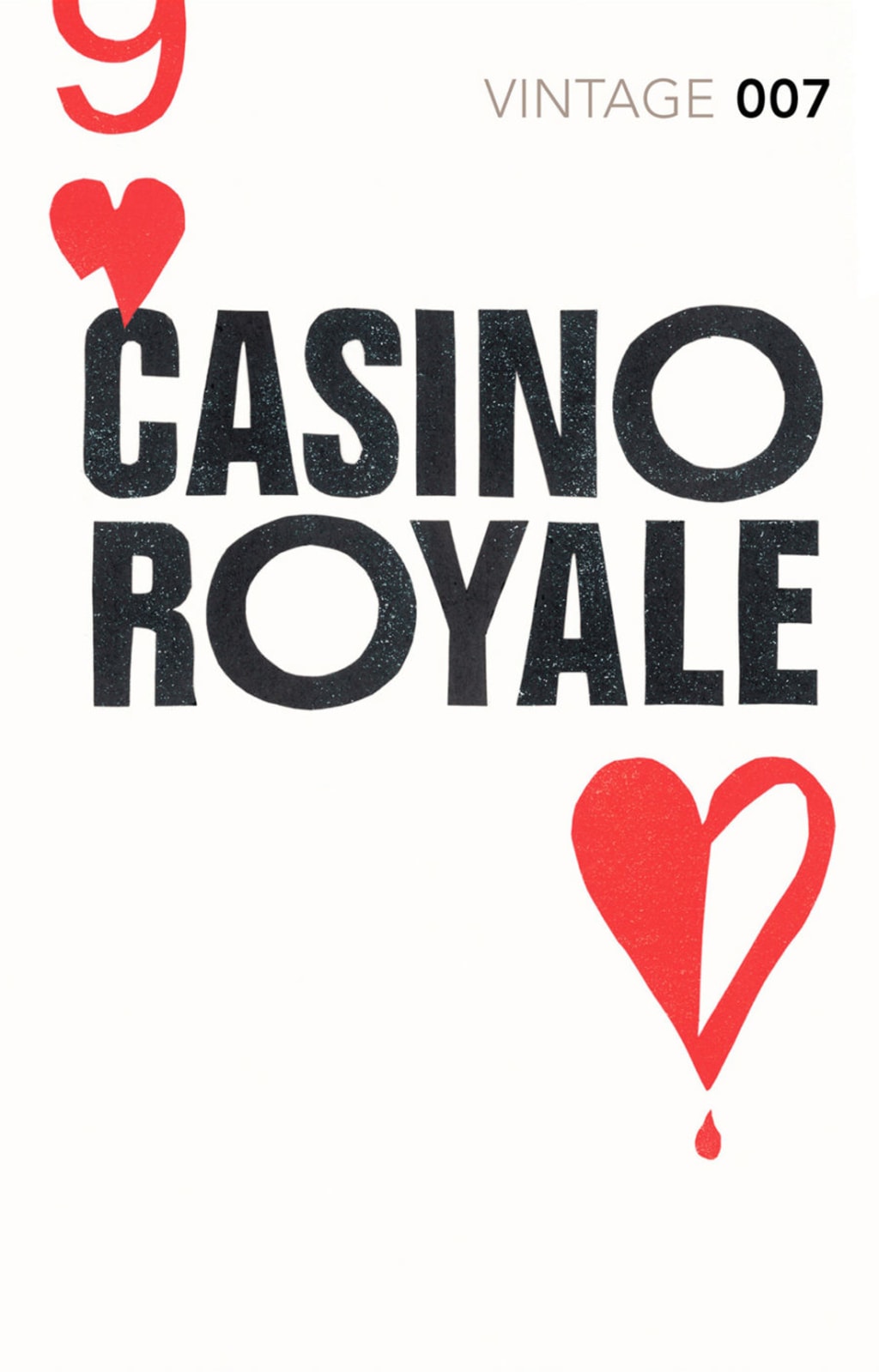
James Bond is an icon of both literary and cinematographic characters. Since Ian Fleming created the character nearly 70 years ago, he has gone on to become an icon of not just the spy genre, but of British pop culture generally. His name is recognisable around the world and is probably the foremost fictional spy ever created. So, the first story in which he appears, 1953's novel Casino Royale, has become a seminal piece of writing, not just because it introduces the character of Bond, but also in the world and the tone it creates. And, despite it hailing from a very different era in terms of what we expect from fiction, Casino Royale still stands as a very sophisticated novel, with plenty of interesting characters, surprising plot turns and an engaging prose style that brings the world it portrays to life in a very vivid way.
Of course, the main focus of such a novel would always be the character of James Bond. Fleming clearly understands this character very well, as we spend pretty much all of the novel with him, following his character through a first-person narrative. It's the little details about Bond that make him interesting: the little observations that he makes about the casino, about Le Chiffre, even about his own actions. There is no ambiguity about Bond, which should make him pretty dull, by the traditional logic of storytelling. Yet, because of his grey morality, it actually makes him absolutely compelling. We are drawn to trying to find out more about Bond, because his certainty is actually, in a way, disturbing. His dismissive attitude towards Vesper makes for some of the most compelling sections of the book, as the reader is never sure if Bond has any feelings towards her at all. Maybe he does really care for her, but can't let it show in case it affects the mission? Maybe he's just using her for his own sexual gratification? Or maybe he doesn't really care at all, and is simply letting Vesper attach herself to him because she desires to? We're never provided with an answer, and it makes these sections intriguing and compelling because of it. It's easy to see why he, as a character, quickly captured the public consciousness, because this novel presents us with an intriguing lead, through which we find ourselves captivated by a complex and involved tale.
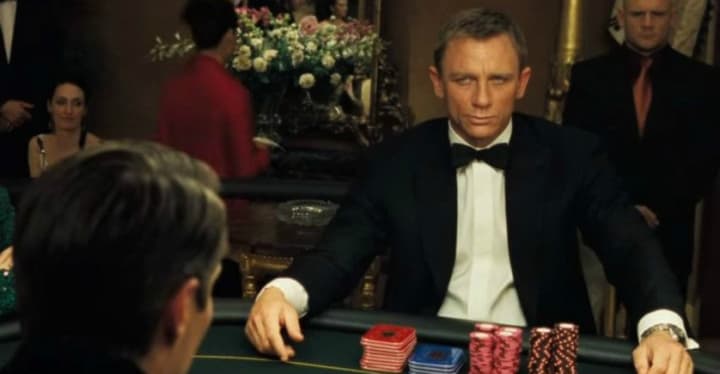
A still from the 2006 film version of Casino Royale, starring Daniel Craig as James Bond. (Picture copyright to MGM Productions.)
The plot itself is fairly standard for the spy genre, but that, I suspect, is because this novel really does set the standard down for spy fiction going forward. It's incredibly tautly written: nothing is wasted and each moment builds to a greater whole. Spy thrillers can often come across as far too indulgent and wasteful, with moments and scenes that are simply there because the writer wants to indulge in there favourite cliches. But this doesn't feature anything that absolutely doesn't need to be there: it's either focused on Bond's battle with Le Chiffre or his relationship with Vesper Lynd. Even the descriptions of the settings or other characters are kept to a bare minimum. Fleming (quite rightly) allows the reader to fill in those details for themselves, and it's in keeping with Bond's character to be vague and non-descriptive about things that aren't important. We can all imagine what a casino looks like: Fleming is more interested in giving us a feel of what a casino is like at three in the morning: he's more interested in explaining Bond's arsenal of weapons than the precise details of the casino or Bond's hotel room. There's even a long section of the book, where Fleming breaks down the specifics of playing poker. Now, there's no denying that this section does drag a little: Fleming could have found a way to condense this information down, to make it a little more palatable. But what it does do is it allows any reader to invest in the stakes of this game. You don't need to be a card games master to understand the stakes of this novel, because Fleming lays out the stakes in this section. In many ways, Fleming is trying to make this world of champagne spies and gritty, hardened criminals understandable and interesting to most readers, who may not have an understanding of it.
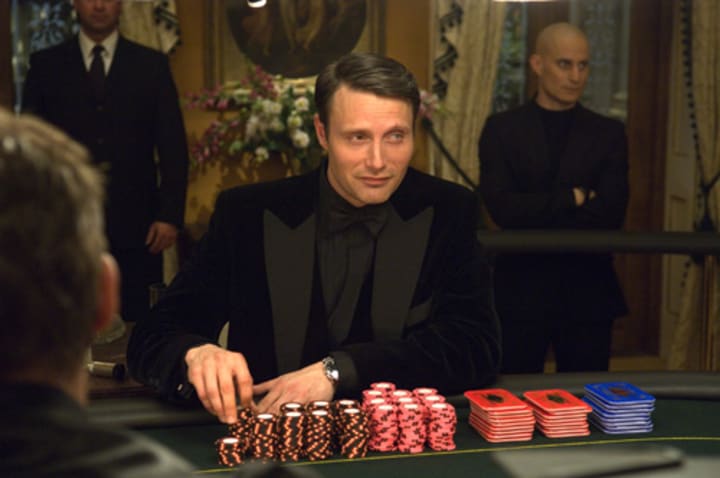
Mads Mikkelsen (Le Chiffre) in the 2006 film version of Casino Royale. (Picture copyright to MGM Productions.)
Casino Royale feels like a trip back in time; back into the early 1950's, back into the world of post-war French glamour. It's a novel dripping with knowledge of the time and the place: no doubt helped by Fleming's own experience during the Second World War. He also doesn't lessen the danger inherent in the situation: sure, he makes you want to be part of the early sections of the novel, with Bond playing his way to Le Chiffre's table. But, by the time Bond has been captured and taken to Le Chiffre's hideout, that sense of adventure has been replaced with a sense of hardened, realistic grit. Fleming is also fantastic at showing this: it doesn't just feel gratuitous, but earned. It's the moment where we find the wool dropping away from our eyes. The torture scene is difficult to read, but Fleming's work is so compelling, you can't bare to stop. Of course, with this trip back in time, you do have some narrative elements that, nowadays, you certainly wouldn't expect to see. Some of the terminology is a little outdated, and the novel's attitude towards women is rather backwards, but, in Fleming's defence, that's part of the world that the story is set in. Sure, it's not an ideal state of affairs, but I feel that, with a piece of fiction from the past, you have to understand the context of the world when the book was published. Apart from Vesper, all the main roles are men. But, if we're being honest, that was what the world was back in the early 50s. It's not a defence, but rather an explanation. Fiction often reflects the time it was written in, and I don't feel it takes away from the high quality of the rest of the novel, which is very strong indeed.
To Fleming's credit, Vesper Lynd is certainly a little more interesting than the stock 'female character in a spy story' trope. She isn't very interesting on her own merits, but, in the relationship she shares with Bond, she adds a complex relationship that the book would be sorely lacking without. She offers some insight into the character of Bond that we wouldn't get without her presence. I would say that the end for her character smacks of sexism on Fleming's part, but she comes off a lot better than most female characters in spy fiction of the time do. The other major character in the novel is Le Chiffre, who is interesting mostly because he spends most of the novel in the wings, waiting to strike. What interesting about Chiffre is how much the character is built up beforehand — we get this elaborate backstory for the character, and both Bond and Felix Leiter (an American CIA agent who helps Bond throughout the novel) build up this character to be a dangerous and intimidating agent of SMERSH. However, he actually seems a little more insecure and less controlling than he first appears to be. I don't necessarily think that this is down to poor characterisation on Fleming's part, but rather it's Fleming's comment on the nature of rumours about individuals (something that the modern James Bond movies have been very keen to pick up on) and how they always turn out to be a disappointment. Le Chiffre isn't the master supervillain: he's not Blofeld or Scaramanger or even Raul Silver. He's just a desperate man doing whatever he can to stay alive. And, in the end, he simply can't keep running away from his fate. That's what's interesting about him as a character: the fact that Fleming shies away from the masterminding villain that Bond has become infamous for in recent years.
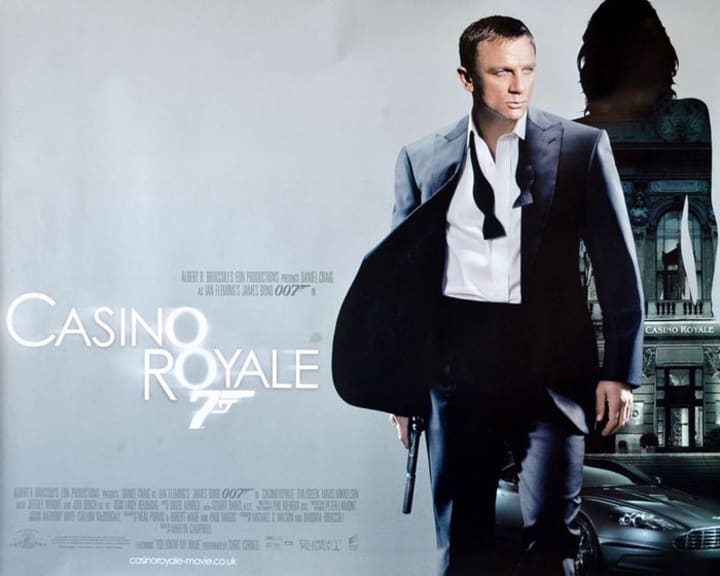
The poster from the 2006 film version of Casino Royale. (Picture copyright fro MGM Productions.)
Overall, Casino Royale is a very good book that keeps the reader engaged throughout. Sure, there are some elements that are anachronistic in the treatment of female characters and how the story is told, but they don't take away from how powerful the story is to start with. It's a taut, fast-paced read, with some engaging characters, thrilling situations, and gripping twists. And, in the character of James Bond, Ian Fleming has created a character who will endure as one of the strongest literary characters ever created. It's a great book and is a fantastic spy tale that will remain a literary classic for a number of years to come.
About the Creator
Joseph A. Morrison
26. Fan of Doctor Who, Blake's 7, The Prisoner and more old-fashioned TV. Reviewer, wannabe writer and general twit.


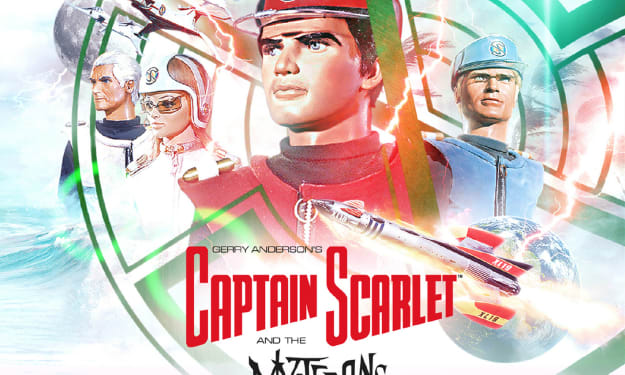



Comments
There are no comments for this story
Be the first to respond and start the conversation.